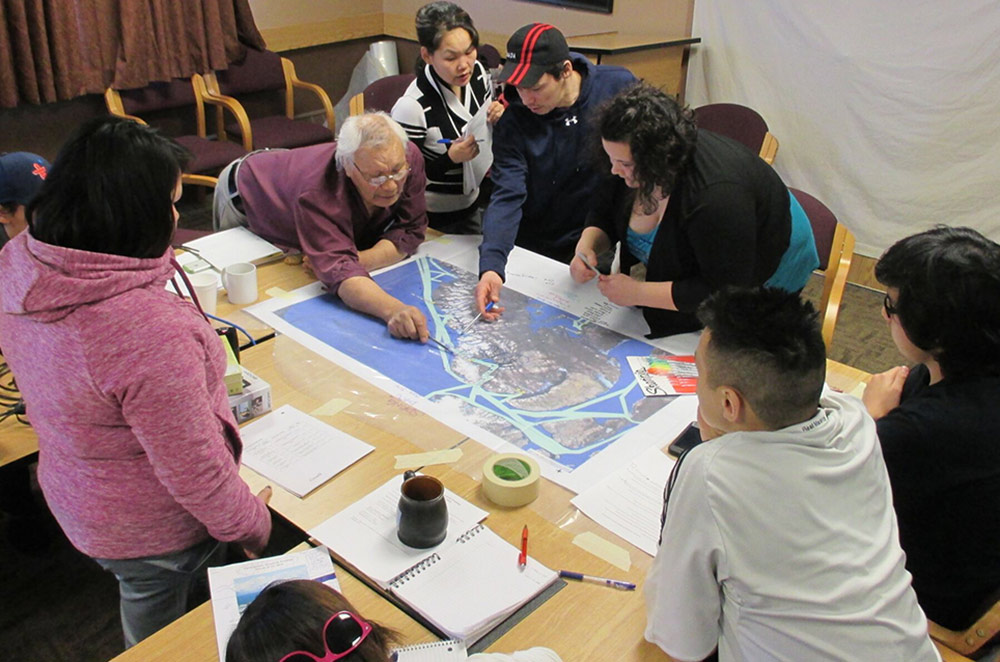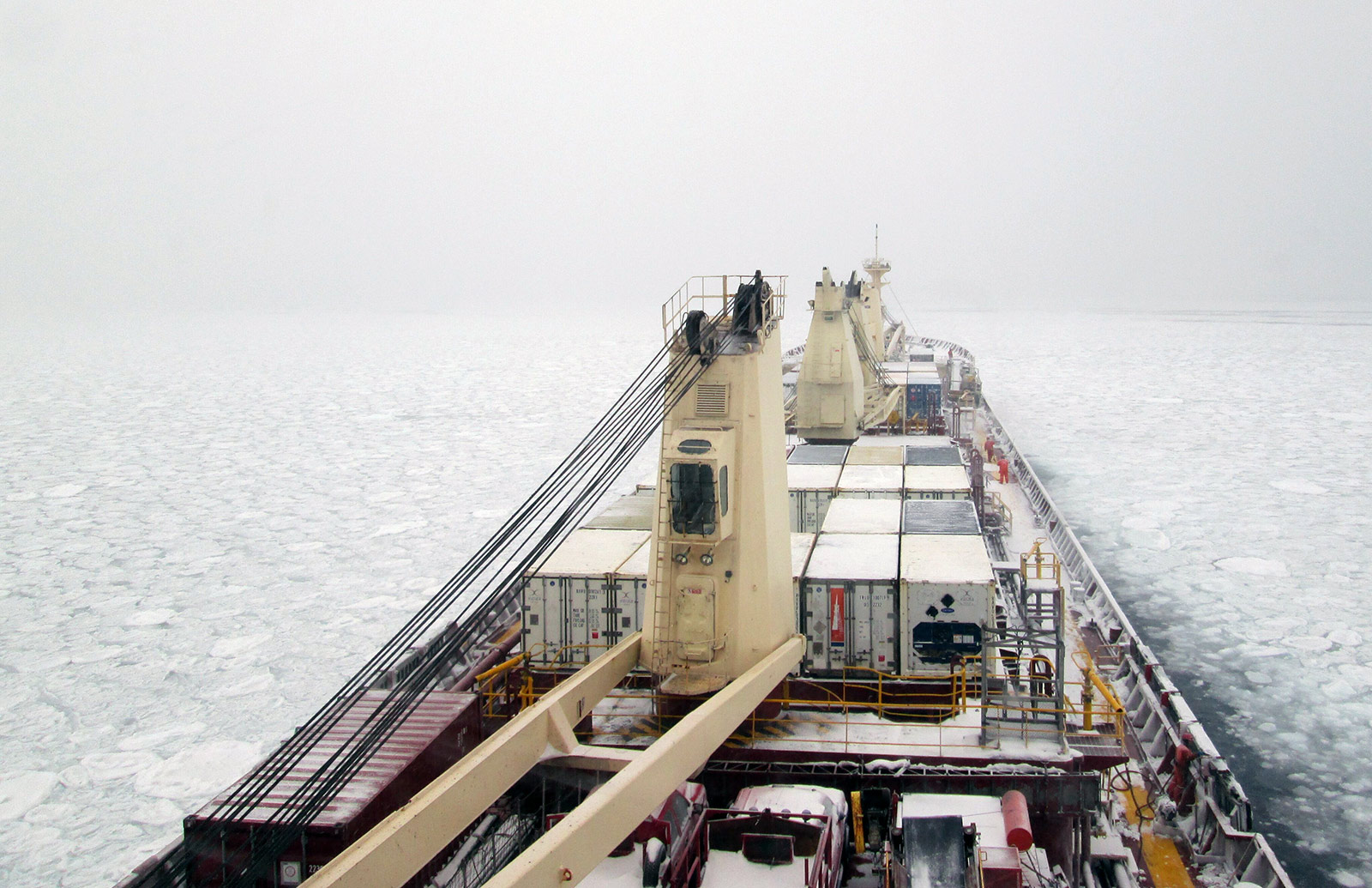About Us
What We Do
- Support interdisciplinary research and development at Canadian universities
- Provide training and work experience to develop the next generation of ocean researchers
- Mobilize scientific knowledge, technology and people through cross-sector engagement

How We Are Funded
MEOPAR is funded by the Strategic Science Fund (SSF). We were previously funded by the federal government’s Networks of Centres of Excellence Secretariat: receiving $25 million in 2012, renewed funding of $28.5 million in 2017, and in 2024, $38.1 million through the SSF. MEOPAR also receives leveraged partner funding and in-kind support from universities, organizations and industry.

Land Acknowledgement and Commitment to Equity, Diversity, Inclusivity, and Accessibility.
MEOPAR is hosted at Dalhousie University on the ancestral and unceded territory of the Mi’kmaq people.
Our network stretches across Turtle Island, which includes Canada, and acknowledges the Indigenous Peoples, including First Nations, Métis, and Inuit peoples, on whose traditional territories our work is conducted upon.
We strive for respectful relationships with all Indigenous peoples, as we are all Treaty people and are responsible for not only upholding but also advancing reconciliation.
MEOPAR is dedicated to improving equity, diversity, inclusivity and accessibility (EDIA) in the ocean scientific community and more broadly, in all the areas MEOPAR is involved. We are committed to continually improving our practices internally and fostering a progressive working and learning environment for our staff and our all the members of our network, integrating EDIA principles in all that we do. In the future of MEOPAR, we will continue to offer EDIA training opportunities to our network members to foster the future of ocean sciences that we need for generations to come. To learn more about our EDIA Strategy, check out this post.
We encourage you to learn more about the Indigenous people and the history of the land where you work and reside. Consider exploring reconciliation and decolonization and EDIA education opportunities to hold yourself accountable.
Do you have suggestions on how we can improve? Send us a note at info@meopar.ca.
Resources:
- Offered by University of Alberta: Indigenous Canada is a 12-lesson Massive Open Online Course (MOOC) from the Faculty of Native Studies that explores the different histories and contemporary perspectives of Indigenous peoples living in Canada. Register here.
- Inclusive writing/écriture inclusive: French, English
- Inclusive communications glossary (pdf) and everyday tips (pdf)
- Need to apologize for a faux pas? Here’s an anatomy of a good apology.
MEOPAR Programs
Board of Directors
- Dr. Siddika Mithani (Chair)
Retired – former Deputy Minister – Public Health Agency of Canada, and Canadian Food Inspection Agency - Ms. Susan Hunt (Vice Chair)
Qikiqtaaluk Corporation - Mr. Thomas Beaver
Retired – former Chief Audit Executive and Head, Risk Management, Canadian Food Inspection Agency - Dr. John Osler
Centre Director, Atlantic Research Centre, Defence Research and Development Canada - Dr. Guillaume St. Onge
Director, Institut de la mer de Rimouski - Ms. Susan Kennedy, CPA
Retired – former Vice President, Corporate Services – C-Core - Ms Lerato, Chondoma, LL.B, MBA, Associate Vice-President, Inclusion, Diversity, Equity, and Accessibility, Acadia University
- Dr. Jason Goldsworthy, Executive Director, COAST
Board Committees
- Finance, Audit, & Risk Management
- Governance
- People, Policy, & Compensation
- Strategic Science Advisory: Non-voting Ex-officio: Brent Else, Scientific Director; and Fanny Noisette, Scientific Director. Doug Wallace, Associate Scientific Director
Member Institutions

- Acadia University
- University of Alberta
- University of British Columbia
- Brock University
- University of Calgary
- Dalhousie University
- University of the Fraser Valley
- University of Guelph
- Lakehead University
- Université Laval
- University of Manitoba
- McGill University
- Memorial University of Newfoundland
- University of Moncton
- University of New Brunswick
- Nova Scotia Community College
- University of Ottawa
- University of Prince Edward Island
- Université du Québec à Montréal
- Université du Québec à Rimouski
- Queens University
- Saint Mary’s University
- University of Saskatchewan
- Simon Fraser University
- St. Francis Xavier University
- Toronto Metropolitan University (formerly Ryerson University)
- University of Victoria
- University of Waterloo
- University of Ontario Western
- University of Windsor
- York University


